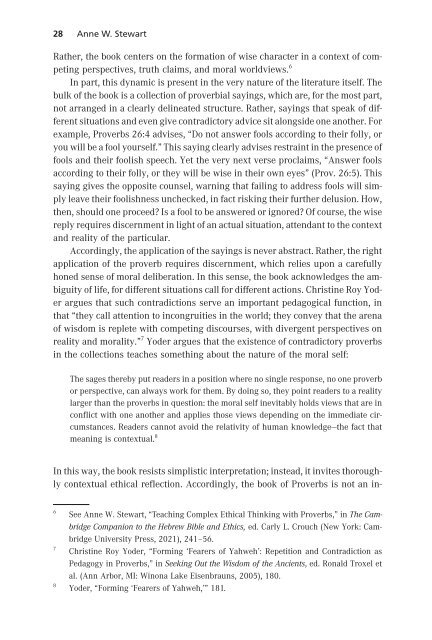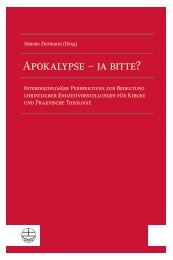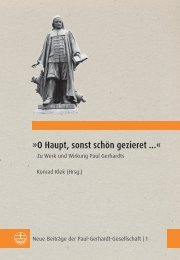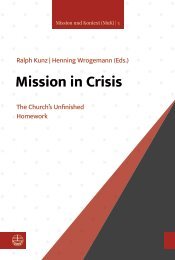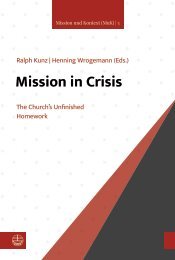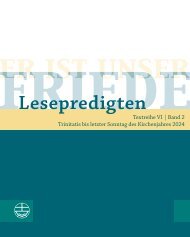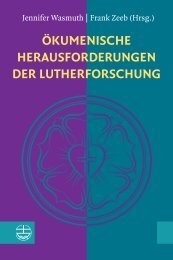Stephen Pickard | Michael Welker | John Witte (Eds.): The Impact of Education (Leseprobe)
This book investigates the impact of education on the formation of character, moral education and the communication of values in late modern pluralistic societies. Scholars from four continents and many different academic fields are involved. While the basic framework for the contributions is informed by Christian traditions, the disciplines cover a significant range, including theology, education, psychology, literature, anthropology, law, and business. This makes for a rich variety of thematic concentrations and perspectives. Readers will quickly sense that the educational foundations and trajectories of any given country are pervasive and have a significant reach into the fabric and shape of the society and its values, making education a barometer of the well-being of a people and their culture. The result is a volume that will inform, stimulate and challenge our understanding of the role of education in contemporary societies.
This book investigates the impact of education on the formation of character, moral education and the communication of values in late modern pluralistic societies. Scholars from four continents and many different academic fields are involved. While the basic framework for the contributions is informed by Christian traditions, the disciplines cover a significant range, including theology, education, psychology, literature, anthropology, law, and business. This makes for a rich variety of thematic concentrations and perspectives. Readers will quickly sense that the educational foundations and trajectories of any given country are pervasive and have a significant reach into the fabric and shape of the society and its values, making education a barometer of the well-being of a people and their culture. The result is a volume that will inform, stimulate and challenge our understanding of the role of education in contemporary societies.
Create successful ePaper yourself
Turn your PDF publications into a flip-book with our unique Google optimized e-Paper software.
28 Anne W. Stewart<br />
Rather, the book centers on the formation <strong>of</strong>wise character in acontext <strong>of</strong> competing<br />
perspectives, truth claims, and moral worldviews. 6<br />
In part, this dynamic is present in the very nature <strong>of</strong> the literature itself. <strong>The</strong><br />
bulk <strong>of</strong> the book is acollection <strong>of</strong> proverbialsayings, which are, for the most part,<br />
not arranged in aclearly delineated structure. Rather, sayings that speak <strong>of</strong> different<br />
situations and even give contradictory advice sit alongside one another. For<br />
example, Proverbs 26:4advises, “Do not answerfools according to their folly, or<br />
you will be afool yourself.” This saying clearly advises restraint in the presence <strong>of</strong><br />
fools and their foolish speech. Yet the very next verse proclaims, “Answer fools<br />
according to their folly, or they will be wise in their own eyes” (Prov. 26:5). This<br />
saying gives the opposite counsel, warning that failing to address fools will simply<br />
leave their foolishness unchecked, in fact risking their further delusion. How,<br />
then, should one proceed?Isafool to be answered or ignored?Ofcourse, the wise<br />
reply requires discernment in light <strong>of</strong> an actual situation, attendant to the context<br />
and reality <strong>of</strong> the particular.<br />
Accordingly, the application <strong>of</strong> the sayings is never abstract. Rather, the right<br />
application <strong>of</strong> the proverb requires discernment, which relies upon acarefully<br />
honed sense <strong>of</strong> moral deliberation.Inthis sense, the book acknowledges the ambiguity<br />
<strong>of</strong> life, for different situations call for different actions. ChristineRoy Yoder<br />
argues that such contradictions serve an important pedagogical function, in<br />
that “they call attention to incongruities in the world; they convey that the arena<br />
<strong>of</strong> wisdom is replete with competing discourses, with divergent perspectives on<br />
reality and morality.” 7 Yoder argues that the existence <strong>of</strong> contradictory proverbs<br />
in the collections teaches something about the nature <strong>of</strong> the moral self:<br />
<strong>The</strong> sages thereby put readers in aposition where no single response, no one proverb<br />
or perspective, can always work for them. By doing so, they point readers to areality<br />
larger than the proverbs in question: the moral self inevitably holds views that are in<br />
conflict with one another and applies those views depending on the immediate circumstances.<br />
Readers cannot avoid the relativity <strong>of</strong> human knowledge—the fact that<br />
meaning is contextual. 8<br />
In this way, the book resists simplistic interpretation; instead, it invites thoroughly<br />
contextual ethical reflection. Accordingly, the book <strong>of</strong> Proverbs is not an in-<br />
6<br />
7<br />
8<br />
See Anne W. Stewart, “Teaching Complex Ethical Thinking with Proverbs,” in <strong>The</strong> Cambridge<br />
Companion to the Hebrew Bible and Ethics, ed. Carly L. Crouch (New York: Cambridge<br />
University Press, 2021), 241–56.<br />
Christine Roy Yoder, “Forming ‘Fearers <strong>of</strong> Yahweh’: Repetition and Contradiction as<br />
Pedagogy in Proverbs,” in Seeking Out the Wisdom <strong>of</strong> the Ancients, ed. Ronald Troxel et<br />
al. (Ann Arbor, MI: Winona Lake Eisenbrauns, 2005), 180.<br />
Yoder, “Forming ‘Fearers <strong>of</strong> Yahweh,’” 181.


